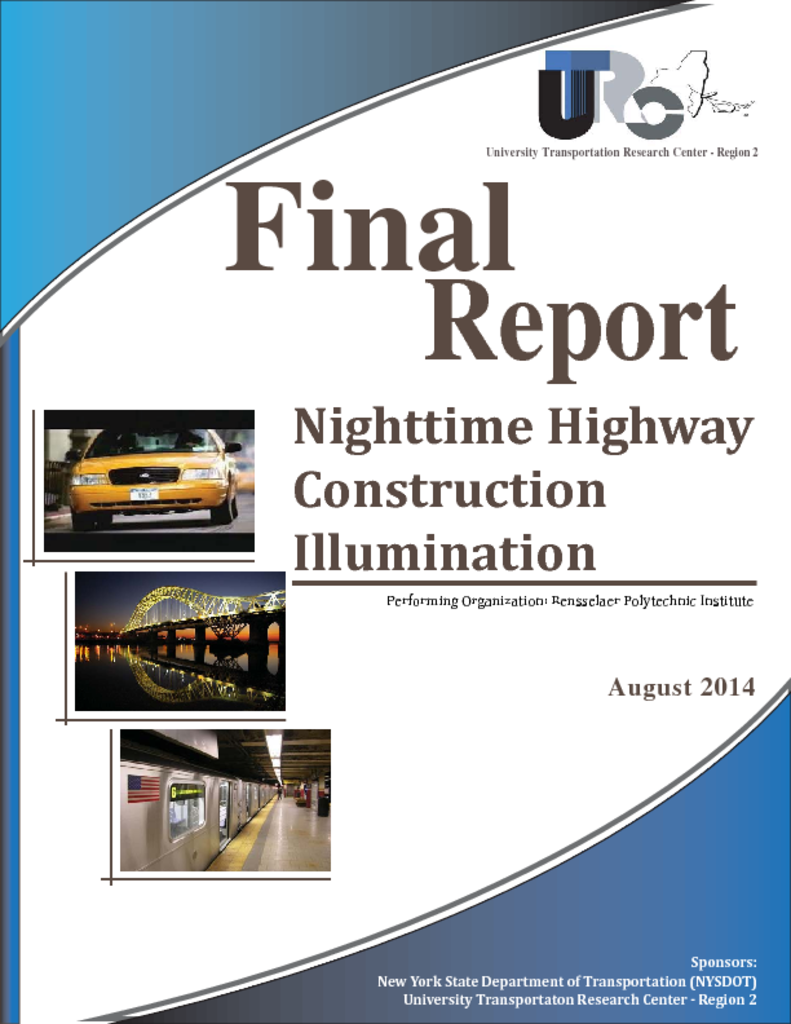The nighttime driving environment, consisting of roadway illumination, signs, vehicle lighting and markers, delineators and flashing lights, can be complex or even confusing for both pedestrians and drivers. The nighttime construction environment is even more complex and even chaotic because of the added presence of workers, construction equipment and bright lights (which are sometimes flashing). Work zones at night often involve changing conditions and new traffic patterns that are unfamiliar to drivers. Workers in highway construction areas and drivers navigating through these areas have distinct visual requirements that must be met both through lighting and other forms of visual information provided in the work zone. Conventional methods for illuminating work zones are prone to producing glare for workers and for drivers. At the same time, new technologies for lighting and traffic control, such as balloon lights, light emitting diodes (LEDs), highly reflective retroreflective sheeting and intelligent warning lights are being developed that could address many of the concerns associated with nighttime highway construction. As part of a multi-phase project, requirements for worker and driver visibility and visual information were identified through human factors research, and various technologies and new approaches to work zone lighting and traffic control were demonstrated and evaluated to provide preliminary guidance for when they might be of benefit. A checklist of planning and design issues, and a method for estimating visual performance under nighttime work zone lighting are provided to help transportation engineers and highway contractors identify promising solutions for work zone lighting.




